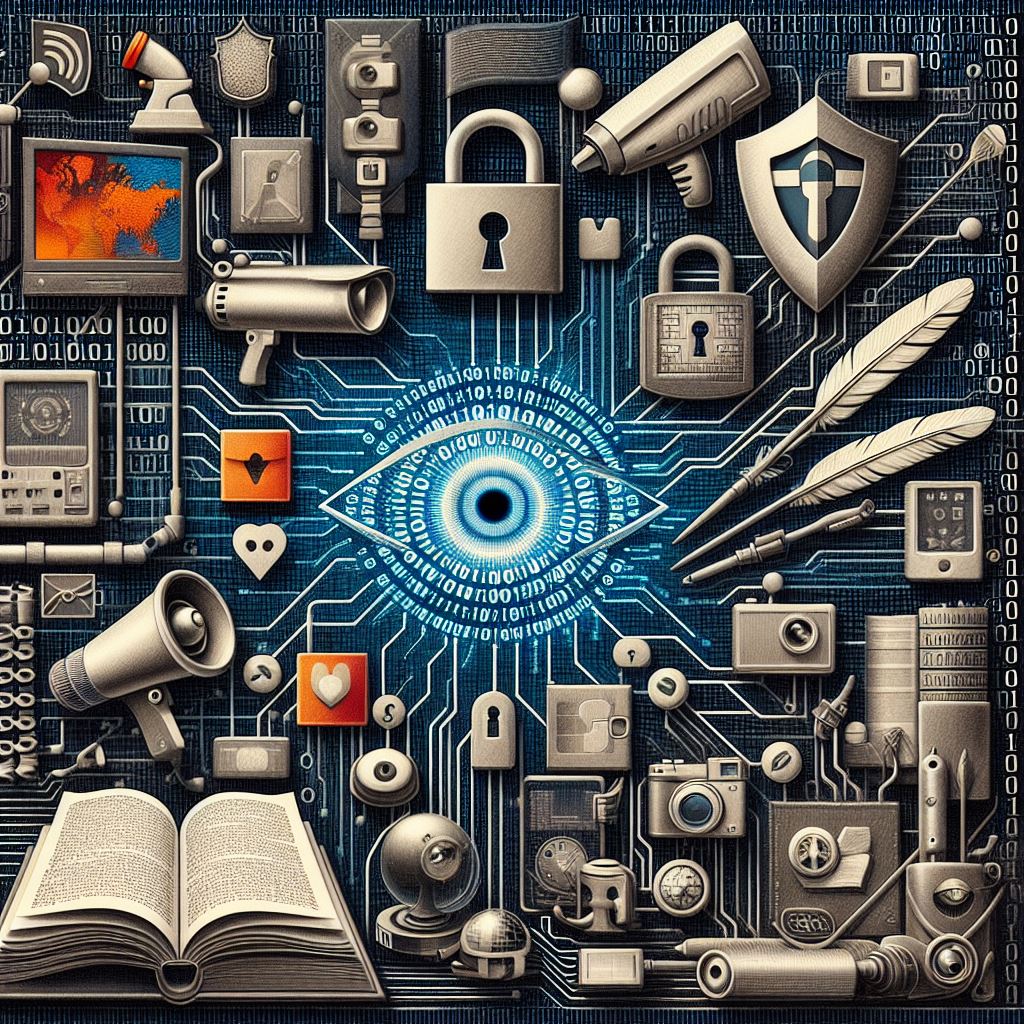A digital world on a human scale

According to projections for developed OECD countries, it is estimated that on average 57% of all jobs may cease to exist as a result of automation; in Poland it is 40% on average. Projections also indicate that almost half (47%) of the occupations known today will be replaced by machine work in the next 25 years. The data indicate that we are in the midst of a major unprecedented revolution, which is only seemingly about the world of technology. We believe that the course of this process depends largely on us.
Does digitization have its dark side? Undoubtedly. However, the fundamental issue lies in perceiving the automation of production and services as a threat similar to what the steam-powered looms were in the 17th century.
It's worth harnessing this irreversible process of "business rationalization" as a catalyst for creating new professions based on entirely new business models. Through this process, we will navigate the technological and social intricacies of digitization with ease. It must be based on recognizing and meeting new, previously unnoticed needs of global markets, with digital services being the key to accessing new markets and consumers.
Chaotic, ill-considered, and short-sighted digitization processes will not only incur additional costs but, above all, may lead to the subordination of many areas of state functioning to corporate interests. The scenario of the triumph of large digital corporations over small businesses has not yet proven itself. We believe that digitization is possible in the spirit of distributism, where the foundation of economic life lies in small and medium-sized enterprises. Strengthened by this, the middle class forms the basis of stability and prosperity.
The development of the information society and the functioning of its tools are not possible without a stable energy supply. Modern, efficient, effective, and balanced energy systems are crucial for the success of all digitization processes.
In the simplest terms, digitisation could be said to be the process of widespread use of ICT in all areas of human activity. However, digitisation processes cannot be reduced to IT issues. They leave their mark on culture, economics and human mentality. They therefore have a significant impact on the lives of individuals and human communities.
Factuality rather than unconditional affirmation
When the first microcomputers appeared in millions of homes around the world in the 1980s as a source of entertainment, few people took into account the fact that in a few decades the technological successors to the then-bought 'toys' would become the main tool for work and contact with the world, without which work would be impossible. When, in the 1970s, a group of students decided to create the first operating systems and set up the free software movement, few expected that billions of miniature computers equipped with one of these open-source solutions would become the main tool for interpersonal relations at a distance. Analysing these facts, it is easy to fall into an affirmation of the new technologies. However, Orwell's works about a world of universal surveillance or Zajdel's visions of systems for classifying and evaluating citizens were treated by many not as warnings but as intellectual entertainment. Social atomisation, relationship problems, mental disorders, the facade of relationships and digital security issues are all phenomena that cast a shadow over the process of mindless digitisation. And there are further challenges ahead, which include the issues of developing a modern energy industry based on the flow of information about demand and energy reserves at the local level, and addressing the technological issue of the energy intensity of ICT systems.
The promise of a better future
Repeated for decades, the promise of a better digital and innovative world was the main mechanism of the modernist transformation. It was even the paradigm of this transformation. However, the world of the triumph of social media - digital dummies of interpersonal relations, the world of constant accessibility and the disappearance of privacy has wreaked unprecedented havoc, shaping public debate and tipping the electoral scales. How to make the world of ones and zeros zero-one again in terms of separating truth and falsehood? What further promise can the digital world offer? It seems that the list of ideas is extremely short. The digital world model based on homogenisation will undoubtedly (if it prevails) be a world of corporate unification, in which the promise of a better future, repeated for decades, can only be a dummy localism. It is important that this promise is not just another stage in the construction of a globally unified society, but becomes a real grassroots initiative of small businesses and conscious institutions.
Wydaje się zatem, że zauważona przez nas pilna potrzeba dialogu i wypracowania standardów i zasad nowego cyfrowego świata nie dotyczy wyłącznie sfer technologii, prawa czy „społecznej ergonomii”. Cyfrowy świat przyszłości wymaga holistycznego spojrzenia na kondycję współczesnego człowieka zanurzonego coraz mocniej w świecie technologii, nad którą ciągle będzie miał kontrolę i jako jednostka i jako społeczeństwo.
Challenges and paradoxes of the future
- It seems that the digital world of the future is a world of many paradoxes. In the world of computing itself, the bottom-up process of emergence of new services and spontaneous networked creativity is being displaced more and more by decreed corporate governance. How do we achieve a symbiosis of these two worlds while preserving the subjectivity of individuals? How to redefine the issue of intellectual property protection so as to protect creators and, at the same time, not to lead to a situation in which excessive protection would hinder the development of network culture by becoming a barrier to the exchange of ideas and thoughts?
- The digital environment is more rapidly creating monopolies that are growing into transnational powers. How do we bring about diversification in the satisfaction of digital needs and limit the possibility of excessive data collection on citizens by entities over which there is no democratic control?
- How do we create a canon of digital culture that defines the ever-changing cultural code necessary for the exchange of ideas and the generation of new ideas?
- How do you find a way to fund your creativity?
- We believe that there is a need for multidimensional reflection on phenomena at the intersection of education, creativity, technology and business. To the extent possible, we wish to provide an inter-institutional as well as an individual platform for these issues.
The fundamental issue underpinning our business is to answer questions:
- To what extent should today's digital world be standardised, leading to cultural homogenisation, and to what extent should it be local, allowing digital achievements to develop or local cultures, standards, solutions and products?
- Where is the limit of the expansion of the global world and where is the possibility of creating local cultural and digital ecosystems? Is a world of digital symbiosis guaranteeing the possibility for humans to develop and preserve their heritage possible?
- How do we bring about a situation in which 21st century man, using digital tools, can reach his full potential and make the most of the potential offered to him?
- In a digital world levelling space, how do we bring about a renaissance of local ties and bring about a revival of community?
Further questions to ask are:
- How will a particular technology affect the labour market and social attitudes?
- Will new digital services lead to the atomisation of social life or its renaissance?
- Will the lifelong education model lead to professionalisation?
- Does a particular business model, product or service have a future and how will it fare in the clash with the multiculturalism of the modern world?
- Will a given government, local authority, company or business strategy ensure sustainable development and is it in line with the standards set?
- How to spot and mitigate risks in the digital thicket and how to implement security standards?
What do we do?
- We equip public institutions with the knowledge, skills and tools necessary to predict social, economic and cultural phenomena and to notice the intersection of these areas.
- We use a wide range of opinions and studies in our research and analysis, including those carried out in-house where necessary.
- We work with a wide range of experts at national and international level.
- We are building an environment of people willing to join the discussion on the future and support us with their experience.
- We provide opinions and support the creation of digital policy strategies, policies and standards. We analyse the coherence of cyber policies and legislation.
- We carry out publishing activities and promote reflection on cyberculture.
- We analyse the compatibility of digital competence certification and validation systems.
